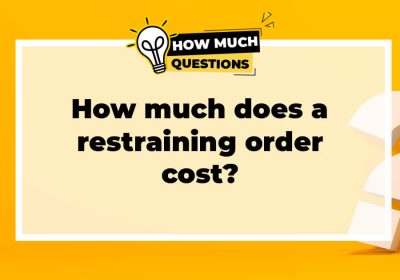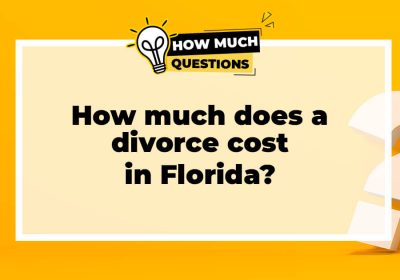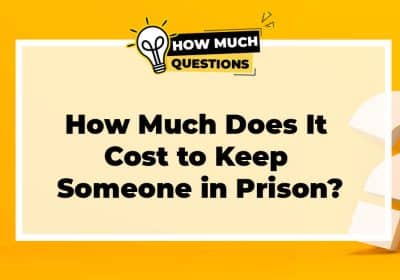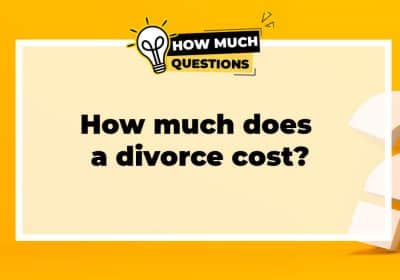
Cost of Suing Someone: A Comprehensive Guide to Legal Expenses
Sue someone can be a complex and costly process. Understanding the expenses involved in a lawsuit is crucial for individuals seeking legal recourse. In this comprehensive guide, we will explore the various factors that influence the cost of suing someone, including attorney fees, court fees, expert witness fees, and more. By the end of this article, you'll have a clearer understanding of the financial aspects of pursuing a lawsuit.
Introduction
When considering legal action against someone, it's essential to be aware of the potential costs involved. Lawsuits can vary widely in terms of complexity and duration, which directly impacts the financial implications. In this guide, we'll delve into the key factors that influence the cost of suing someone, providing you with valuable insights to navigate the legal landscape effectively.
Understanding the Basics of a Lawsuit
Before delving into the cost aspects, it's important to have a basic understanding of how lawsuits work. A lawsuit is a legal process initiated in civil court to resolve a dispute between two parties. The process, known as litigation, involves several stages, including filing the lawsuit, gathering evidence, presenting arguments, and reaching a resolution.
Initiating a Lawsuit
To initiate a lawsuit, the individual bringing the claim, known as the plaintiff, must file a formal complaint against the party being sued, known as the defendant. The lawsuit is filed in the appropriate legal jurisdiction, usually the court where the incident occurred or where the defendant resides.
Types of Lawsuits
Lawsuits can encompass a wide range of legal matters. Some common types of lawsuits include:
- Personal Injury Lawsuit: These lawsuits involve seeking compensation for injuries or damages caused by the negligence of another party.
- Breach of Contract Lawsuit: When one party fails to fulfill the terms of a legally binding contract, the other party may file a breach of contract lawsuit.
- Employment Lawsuit: Disputes between employers and employees, such as wrongful termination or workplace discrimination, may lead to employment lawsuits.
- Medical Malpractice Lawsuit: If a healthcare professional's negligence causes harm to a patient, a medical malpractice lawsuit may be pursued.
Understanding the specific type of lawsuit relevant to your situation is important as it can influence the overall cost.
Factors Influencing the Cost of a Lawsuit
Several factors contribute to the overall cost of a lawsuit. By familiarizing yourself with these factors, you can better prepare financially for the legal journey ahead.
Attorney Fees
One of the most significant expenses in a lawsuit is attorney fees. Attorneys may charge an hourly rate or work on a contingency fee basis, where they only receive payment if the case is successful. Retainer fees, which are upfront payments to secure the services of an attorney, may also apply.
Court Fees and Filing Costs
Courts typically charge fees for filing a lawsuit, known as filing fees. These fees vary depending on the nature and complexity of the case. Additionally, there may be additional costs for serving legal documents to the defendant or other parties involved in the lawsuit.
Expert Witness Fees
In certain cases, expert witnesses may be required to provide specialized knowledge or opinions related to the lawsuit. These witnesses often charge fees for their time and expertise. The qualifications and reputation of expert witnesses can also impact their fees.
Discovery Costs
During the discovery process, both parties gather evidence and information to support their case. This may involve document production, depositions, and other investigative procedures. These activities can incur costs, such as court reporter fees and fees associated with requesting and reviewing documents.
Miscellaneous Expenses
Several miscellaneous expenses can arise during a lawsuit. Administrative costs, such as photocopying fees or postage expenses, are common examples. Additionally, if the lawsuit requires travel, expenses related to transportation, accommodation, and meals may be incurred.
Additional Legal Expenses to Consider
Beyond the core expenses mentioned earlier, there are additional costs that may arise during the course of a lawsuit.
Mediation and Arbitration Costs
In some cases, parties may opt for alternative dispute resolution methods like mediation or arbitration. These processes aim to reach a resolution outside of court. However, there are fees associated with hiring a mediator or an arbitrator, which should be taken into account.
Appeals and Post-Trial Expenses
If either party decides to appeal the court's decision or if post-trial motions are required, additional expenses will be incurred. Appellate attorneys may charge separate fees for handling the appeals process, and there may also be fees for obtaining transcripts of court proceedings.
Legal Insurance and Funding Options
Legal insurance or litigation financing may provide financial assistance during a lawsuit. Legal expense coverage, similar to other types of insurance, can help mitigate some of the expenses. Litigation financing, also known as third-party funding, involves obtaining funds from a specialized company to cover legal costs.
Managing Legal Costs and Seeking Financial Assistance
While lawsuits can be costly, there are strategies to manage legal expenses and seek financial assistance when needed.
Negotiating Attorney Fees
It's often possible to negotiate attorney fees before committing to legal representation. Discuss fee structures and explore the possibility of alternative billing arrangements to ensure a better alignment with your budget.
Legal Aid and Pro Bono Services
For individuals who meet specific income criteria, legal aid organizations and pro bono attorneys can provide free or reduced-cost legal services. Legal clinics and nonprofit organizations may also offer assistance in certain areas of the law.
Legal Expense Insurance
Consider researching legal expense insurance policies. These specialized insurance plans can provide coverage for legal fees and other related expenses. Different insurance providers offer various policy options, so it's essential to review the terms and coverage details before making a decision.
Case Studies and Examples
To provide a practical understanding of the cost implications of lawsuits, let's explore a couple of case studies.
Personal Injury Lawsuit Example
In a personal injury lawsuit, the cost of suing someone can vary depending on the severity of the injuries and the complexity of the case. Medical expenses, expert witness fees, and attorney fees are some of the factors that contribute to the overall cost. For instance, if the injuries require extensive medical treatment and long-term care, the expenses can be substantial. Settlement amounts also depend on various factors, including the extent of the damages and the strength of the evidence.
Breach of Contract Lawsuit Example
In a breach of contract lawsuit, the costs primarily depend on the complexity of the case and the damages sought. Attorney fees and court fees are typical expenses, and expert witnesses may be necessary to evaluate the breach and assess the resulting damages. The length of the litigation process can also affect the overall cost.
Conclusion
Suing someone involves navigating a complex legal process, and it's essential to be aware of the potential expenses. This comprehensive guide has shed light on the various factors influencing the cost of a lawsuit, including attorney fees, court fees, expert witness fees, and discovery costs. By understanding these financial implications, you can make more informed decisions when pursuing legal action.
It's important to note that the information provided in this article is for informational purposes only and should not be considered legal advice. Every case is unique, and consulting with legal professionals is crucial to understanding the specific costs and implications associated with your situation.
Disclaimer: This article is intended for informational purposes only and should not be construed as legal advice. For legal matters, consult with qualified professionals to obtain advice tailored to your specific situation.
Frequently Asked Questions (FAQ)
How much does it cost to sue someone?
Suing someone can involve various expenses, including attorney fees, court costs, and other related fees. The overall cost depends on factors such as the complexity of the case and the duration of the legal process. It is advisable to consult with a legal professional to get a better understanding of the specific costs involved in your situation.
What are the factors that influence the cost of a lawsuit?
Several factors can influence the cost of a lawsuit, such as attorney fees, court fees, expert witness fees, discovery costs, and miscellaneous expenses. The complexity of the case, the duration of the legal process, and the specific type of lawsuit can also impact the overall expenses. Consulting with a legal professional can help you assess the factors relevant to your particular case.
Are there ways to manage legal costs when suing someone?
Yes, there are strategies to manage legal costs when pursuing a lawsuit. You can negotiate attorney fees, explore pro bono services or legal aid options, and consider legal expense insurance. It is essential to discuss fee structures with your attorney and explore available financial assistance resources to help manage the overall expenses effectively.
Can I get financial assistance for suing someone?
In some cases, financial assistance options may be available to help cover the costs of suing someone. Legal expense insurance, litigation financing, and certain legal aid organizations or pro bono services may provide support. Researching and exploring these options can help alleviate some of the financial burdens associated with a lawsuit.
How can I reduce legal fees when suing someone?
Reducing legal fees can be achieved through various means. You can negotiate attorney fees, consider alternative fee structures, and actively manage the legal process by providing organized and thorough documentation. Effective communication with your attorney and exploring cost-saving measures can help minimize legal expenses.
While the main costs of suing someone include attorney fees, court fees, and other known expenses, there may be hidden costs as well. These can include additional expenses related to the discovery process, unexpected court filings, or ancillary services required during the legal proceedings. It's crucial to discuss potential hidden costs with your attorney to better prepare financially.
Are there alternatives to suing someone that may be more cost-effective?
Yes, in some cases, alternative dispute resolution methods such as mediation or arbitration can be more cost-effective than going to court. These methods aim to resolve disputes outside of the traditional litigation process, potentially reducing both time and expenses. Consulting with a legal professional can help determine if alternative dispute resolution is suitable for your specific situation.
How long does a lawsuit typically take?
The duration of a lawsuit varies depending on the complexity of the case, court caseload, and various other factors. Some lawsuits can be resolved relatively quickly through settlement negotiations, while others may take several months or even years to reach a resolution. It's important to understand that each lawsuit is unique, and the specific timeline will depend on the circumstances of your case.
What are the potential outcomes of suing someone?
The potential outcomes of suing someone can vary widely depending on the nature of the case and the evidence presented. Possible outcomes include a favorable settlement agreement, a court judgment in your favor, or a dismissal of the case. Consulting with an attorney familiar with your specific case can provide a better understanding of the potential outcomes you may face.
Do I need an attorney to sue someone?
While you can technically represent yourself in a lawsuit, it is highly recommended to seek the guidance of an experienced attorney. Lawsuits involve complex legal processes and navigating them without legal expertise can be challenging. An attorney can provide valuable advice, handle the necessary paperwork, and advocate for your rights throughout the lawsuit.
Disclaimer: The information provided here is for informational purposes only and should not be considered legal advice. Consulting with a qualified attorney is essential for obtaining advice tailored to your specific situation.
If you want to know other articles similar to Cost of Suing Someone: A Comprehensive Guide to Legal Expenses you can visit the category Legal and Professional Services.
- Introduction
- Understanding the Basics of a Lawsuit
- Factors Influencing the Cost of a Lawsuit
- Additional Legal Expenses to Consider
- Managing Legal Costs and Seeking Financial Assistance
- Case Studies and Examples
- Conclusion
- Frequently Asked Questions (FAQ)
- How much does it cost to sue someone?
- What are the factors that influence the cost of a lawsuit?
- Are there ways to manage legal costs when suing someone?
- Can I get financial assistance for suing someone?
- How can I reduce legal fees when suing someone?
- What are the hidden costs of suing someone?
- Are there alternatives to suing someone that may be more cost-effective?
- How long does a lawsuit typically take?
- What are the potential outcomes of suing someone?
- Do I need an attorney to sue someone?
Leave a Reply







You might be interested in